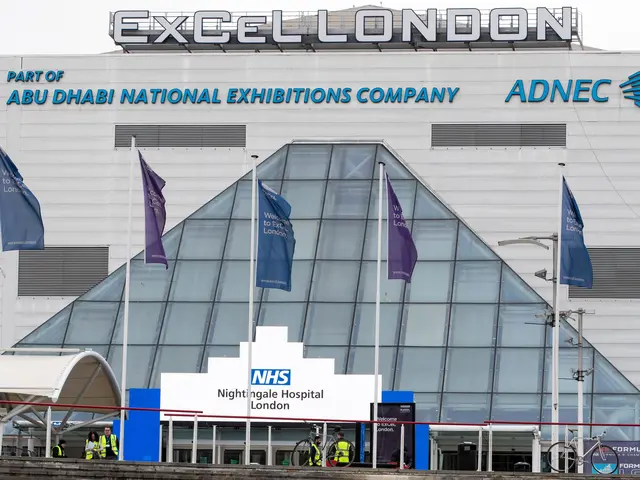Britons watching television news bulletins at home were amazed to see reports of massive hospitals being built in days in China's Wuhan during the early days of the COVID-19 outbreak. Little could they have realised that just weeks later similar fast-built hospitals would be created in the heart of London as well as in several other major British cities.
The first of the so-called field hospitals, named after Britain's most famous nurse Florence Nightingale, is due to open this week in London for its first patients.
According to the Department of Health and Social Care, the number of confirmed COVID-19 cases in Britain reached 29,474 as of Wednesday morning, an increase of 4,324 in 24 hours. As of Tuesday afternoon, of those hospitalised in the country who tested positive for novel coronavirus, 2,352 have died, up 563 over the same time on the previous day.
Ruth May, chief nursing officer for England, described the pandemic as the single biggest health challenge Britain has faced in generations.
Capable of eventually accommodating 4,000 COVID-19 patients, the NHS England said the first Nightingale Hospital based at the ExCeL conference center in east London will initially provide up to 500 beds equipped with ventilators and oxygen.
The hospital, built in a fortnight since the first plans were drawn up, will treat previously fit and healthy people struck down by COVID-19. Sicker patients in London who are more likely to die will be cared for in normal National Health Service (NHS) hospitals, the Guardian newspaper reported.
The newspaper said the Nightingale Hospital in Birmingham, transformed from the National Exhibition Centre, will care for up to 2,000 non-serious, non-COVID-19 patients and will be staffed mainly by family doctors. The Manchester Central conference center, originally a cavernous rail terminal, is being converted into a Nightingale Hospital with 1,000 beds. Both will be completed within days.
Meanwhile, emergency field hospitals are being created urgently for 1,000 patients at the Scottish Event Campus in Glasgow and for 2,000 at the Principality Stadium in the Welsh city of Cardiff to help care for the rising number of patients in Scotland and Wales respectively.
NHS CEO Simon Stevens said the NHS is taking extraordinary steps in what he described as exceptionally challenging circumstances to fight coronavirus.
"That's why NHS clinicians and managers are working with military planners and engineers to create, equip, staff and open the NHS Nightingale London, and we're very grateful for their support," he said, "this will be a model of care never needed or seen before in this country."
"Despite these amazing measures, the fact is no health service in the world will cope if coronavirus lets rip," he said.
Britain is witnessing the biggest ever peacetime mobilisation of people. Military personnel have been involved in the planning stages of the field hospitals in London, Birmingham, Manchester as well as in Glasgow. It has seen troops with engineering and design expertise providing infrastructure, logistics and project management advice.
Apart from medics and military staff, a massive army of volunteers -- many with medical experience -- have also been recruited to work along with civil and military doctors.
When the NHS launched an appeal for volunteers to come forward, more than 750,000 people have offered help. More than 18,000 doctors, nurses and other former NHS staff volunteered to return to fight the virus.
 简体中文
简体中文





